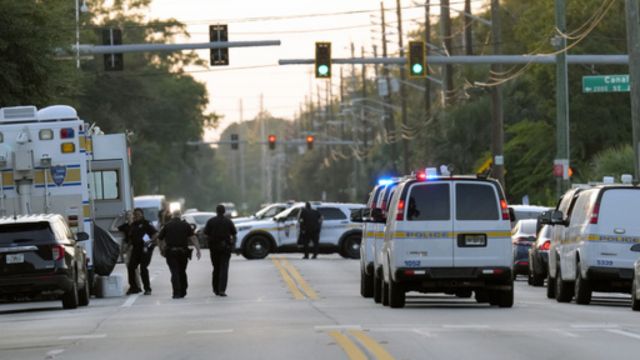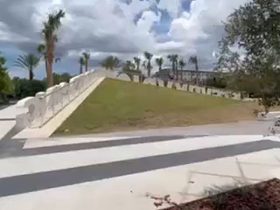A significant amount of information has already come to light regarding the individual who fatally shot three Black customers at a Dollar General store in Jacksonville, Florida, yesterday. The shooter was armed with both an AR-15-style weapon and a handgun.
He left behind written manifestos expressing his intense hatred towards African Americans. Additionally, he was dressed in a tactical-style uniform, reminiscent of military attire.
While there are still unanswered questions surrounding the acquisition of the firearms, his mental state, and the potential presence of accomplices, the fundamental narrative is clear. He made his intentions evident, making it simple for us to understand.
The events of yesterday were more than just a hate crime; they were a spectacle meant to be observed by the world. We are living in an era where mass shootings are staged like productions. However, it’s essential to realize that this is not a one-act play unfolding in isolation.
During a press conference held shortly after the shooting, Sheriff T. K. Waters was direct and forthcoming, providing as much information as was available at that time.
He did not shy away from using explicit language from the shooter’s manifesto, including racial slurs. This straightforward approach aimed to dispel any euphemisms like “racially motivated” and instead emphasize the gravity of the hatred expressed.
Sheriff Waters sought to reassure the public, especially the Black community, by stating that the gunman had acted alone, implying that there was no ongoing threat. While his assertion that the shooter had no affiliation with any large group may technically be accurate, it’s an incomplete narrative.
Individuals engaging in right-wing violence are indeed part of a larger network that draws inspiration from online sources and the actions of previous attackers. They emulate past mass shootings in places like New Zealand, Norway, and South Carolina, each feeding off the notoriety of the others.
Just like foreign terrorist organizations, these individuals utilize violence to draw attention to their extremist beliefs. They aim to propagate the distorted narrative that white supremacy persists and that they are willing to commit violence to uphold it.
In today’s world of social media and the dark web, these individuals find each other on platforms that accommodate their ideologies. The public display of hatred is an integral part of their strategy. The neo-Nazi movement has gained traction in Jacksonville and Florida at large in recent years.
Acts like projecting anti-Semitic messages on buildings serve to highlight their presence. While it’s unclear if the Jacksonville shooter was connected to such groups, a federal investigation will likely explore this angle.
According to information presented at the press conference, the shooter contacted his father before carrying out the attack. He directed his father to review his computer, where he had left his written manifestos, effectively a script for his right-wing terror.
He wanted to ensure that his motives were understood. The manifestos contained hateful messages intended for his parents, law enforcement, and the media; he held nothing back.
A photograph released by the police depicted one firearm adorned with swastikas, signifying its association with Nazism. The message was unmistakable.
However, the shooter’s audience extended beyond his personal motives and neo-Nazi affiliations. He was targeting the Black community, both locally and nationally.
Notably, he had been spotted earlier in the day at Edward Waters University, Florida’s oldest historically Black university. This choice of location carries significant weight, given the broader context of African-American struggles for equality and the ongoing cultural debates.
The university, founded for the education of freed Black individuals, represents a focal point for these issues. Every historically Black college and university (HBCU) in the country, along with their students and their families, will inevitably feel vulnerable due to the shooter’s actions.
The timing of the shooting, occurring on the fifth anniversary of a prior mass shooting in Jacksonville and the 60th anniversary of Martin Luther King Jr.’s iconic “I Have a Dream” speech, adds another layer of significance. Even if the shooter was not consciously aware of these anniversaries, their impact on the African-American community cannot be ignored.
While the Jacksonville shooting could have resulted in even more casualties, the shooter’s meticulous planning and control over the situation allowed him to create a day of violence that would shock and horrify.
Amid discussions about gun control and mental health, the central narrative remains unchanged. What is certain is that we will witness further acts, with different participants and victims, repeating this distressing American tragedy on both large and small scales. This performance has no end in sight.












Leave a Reply